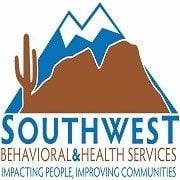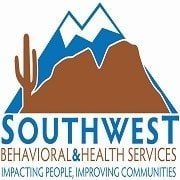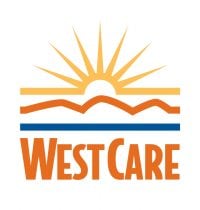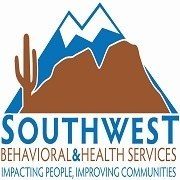Mohave Mental Health Clinic - Subacute Facility
Drug Rehab Center in Kingman, Arizona
The Mohave Mental Health Clinic Subacute Facility in Kingman, AZ offers accredited treatment services for individuals suffering from addiction and dual-diagnosis, including group and individual therapy, medication management, family therapy, and more.
About Mohave Mental Health Clinic - Subacute Facility in Arizona
Mohave Mental Health Clinic (MMHC) in Kingman, Arizona stands out as a leading private, dual diagnosis drug rehab facility focused on delivering comprehensive behavioral health services. Its team of specialists excels in providing personalized mental health support through evidence-based approaches. Unique to MMHC is its ability for individuals to partake in mental health care while seamlessly integrating treatments into their daily lives.
- Dual Diagnosis Expertise: MMHC specializes in treating both mental health issues and substance abuse, offering a holistic path to recovery.
- Flexible Outpatient Services: Patients can maintain their daily routines while accessing individual counseling, group therapy, and psychiatric medication management.
- Crisis Intervention: Immediate support for acute mental health crises, guiding individuals to stability and connecting them with further resources.
Accredited by the State License and the Joint Commission on Accreditation of Healthcare Organizations (JCAHO), Mohave Mental Health Clinic utilizes a robust array of therapies and treatments to meet the unique needs of those battling addictions and mental health disorders. Their professional psychiatric evaluations and tailored medication management underscore their commitment to individualized care.
Addressing a broad spectrum of issues including mental health challenges, drug addiction, alcoholism, and opioid addiction, MMHC employs a variety of treatment methods such as dual-diagnosis, individual counseling, and group therapy across both inpatient and outpatient settings, ensuring a comprehensive and adaptable approach to recovery and well-being.
Genders
Ages
Modality
Additional
Accreditations
State License

JCAHO
Conditions and Issues Treated
When someone in struggles with both addiction and mental or emotional illness, this is considered a dual diagnosis. Dual diagnosis treatment can include therapy for these issues to happen simultaneously, which will allow either of them to be treated effectively.
Sometimes people who have suffered from addiction disorder also suffer from co-occurring disorders such as depression, anxiety, bipolar disorder, etc., making them “dual diagnoses.” Dual diagnoses require specialized treatment programs where drug and alcohol addiction are addressed along with psychiatric illnesses. Some rehabilitation facilities provide patients suffering from cooccurrences a program with highly integrated services and a clean environment with few distractions to help them succeed.
Levels of Care Offered
This center offers a variety of custom treatment tailored to individual recovery. Currently available are Dual-Diagnosis, Inpatient, with additional therapies available as listed below.
Inpatient treatment for alcoholism or drug addiction is an option that provides the addict with a supportive environment in which they can stop using. After detox, an inpatient treatment center provides a structured environment for the addict to recover from their addiction and begin taking steps toward a lifetime of sobriety.
This type of treatment is appropriate for addicts that are most in need of intensive care and supervision. This includes those who were unable to quit on their own, those who need more structure than they can get in outpatient treatment, and those whose addiction has led them into legal trouble or severe health problems.
Therapies & Programs
Because no single treatment is effective for all addicts, the goal of treatment and therapy should be to figure out what works best for each individual. Tolerance and withdrawal levels differ from person to person, affecting the treatment intensity required. Addiction treatment should aim to help addicts develop healthy coping mechanisms for dealing with their addiction and its underlying causes.
Family therapy is beneficial for people who are in addiction treatment services because it offers addicts the opportunity to work with their family members to better understand what led them to make choices that contributed to their addiction.
This type of therapy helps family members reach a deeper understanding of how they can best support their loved one during recovery. It also helps the addict better understand their own motivations and triggers that led them to turn to substance abuse.
Family therapy can help addicts in the following ways:
- Assists family members in processing difficult feelings so they don’t blame or resent recovering addicts
- Assists family members in understanding how addiction has impacted the addict and everyone who is involved with them
- Allows the addict to take responsibility for their actions, while encouraging improved communication skills
- Helps family members understand how to best support an individual in recovery so addicts don’t relapse again.
Group therapy can help build a stronger support system and give addicts in Kingman, AZ insight into their addiction that they gain through shared conversations. Group therapy occurs in a controlled group environment, exclusive of one on one meetings. This makes it safer for patients to feel comfortable sharing the struggles they’re going through and gaining perspective.
Trauma therapy is beneficial for people who are recovering from drug addiction because it helps them heal from past traumas that may have caused them to turn to harmful substances or led them to experience negative emotions that contributed to their destructive behaviors.
This type of treatment works by processing difficult experiences so individuals can learn how to process these events without having to turn to substances for coping.
Trauma therapy can help addicts in the following ways:
- Helps individuals understand their experiences and emotional responses to difficult events, including why they turned to drugs or alcohol
- Provides them with comfort and support while working through difficult emotions related to these traumatic experiences
- Offers an opportunity for addicts to have a voice and be heard, which can improve their self-esteem
- Can help them develop coping skills so they can better respond to triggers instead of turning to substance abuse.
Cognitive-behavioral therapy is a technique that is used to help people with addiction. Specifically, it is a way of identifying thoughts and behaviors that cause the addiction. It is typically used in an individual counseling session.
The content explains cognitive behavioral therapy and how it works to address some behaviors that may be leading to unintended consequences in their life, as well as its benefits for those seeking sobriety.
It works by helping people to talk through their issues and addressing the thoughts that cause said behaviors. It is an excellent way of learning about oneself and one’s perception of the world.
It’s important to remember that malnutrition can affect your mood and energy level, which affects your desire to get sober. Good nutrition helps keep your body strong against the familiar ravages of drug use–tuberculosis, hepatitis, abscesses, infections, etc. — as well as the physical symptoms of withdrawal. If you’re eating right, you’ll have more energy for productive activities and will have more strength to fight cravings.
Nicotine Replacement Therapy (NRT) has many benefits for drug addicts who also choose to quit smoking. It is an effective technique at this treatment center that provides smokers with the nicotine they are addicted to without inhaling carcinogens from cigarettes to wean them off entirely. You can reduce your risk of heart disease and cancer, irritability, bone loss, stroke, type II diabetes, fertility in women, an enhanced sense of taste and smell.
Patient Experience
Experiential Therapy at Mohave Mental Health Clinic - Subacute Facility
Experiential therapy uses engaging activities to help patients access deeper, often hidden emotions. For example, the patient could role-play a problematic situation or engage in activities like drawing, painting, poetry writing, music composition, exercising, or journaling to help process intense feelings.
Experiential therapy is a type of therapeutic approach that focuses on having patients work through problems, issues, or emotions by engaging directly in some real experience. Experiential therapy occurs face-to-face with a therapist who helps these people to explore their feelings first hand.
It is based on the belief that to truly understand and gain insight into oneself and behavior; it is necessary and helpful to have real experiences with the issues involved. Some therapists have developed the experiential therapy approach as a way of treating addictive behaviors or dealing with impulses related to addiction. It comes from an existential school of psychotherapy called ‘experiential existential.’
Payment Options Accepted
For specific insurance or payment methods please contact us.
Is your insurance accepted?
Ask an expert, call (888) 674-0062
Mohave Mental Health Clinic Associated Centers
Discover treatment facilities under the same provider.
- Mohave Mental Health Clinic - Lake Havasu City in Lake Havasu City, AZ
- Mohave Mental Health Clinic Child and Family Services Center in Bullhead City, AZ
- Mohave Mental Health Clinic - Bullhead City in Bullhead City, AZ
- Mohave Mental Health Clinic - Kingman Children's Clinic in Kingman, AZ
Learn More About Mohave Mental Health Clinic Centers
Additional Details
Specifics, location, and helpful extra information.
Kingman, Arizona 86409 Phone Number(928) 757-8111 Meta DetailsUpdated April 15, 2024
Staff Verified
Mohave Mental Health Clinic - Subacute Facility Patient Reviews
There are no reviews yet. Be the first one to write one.
Kingman, Arizona Addiction Information
Arizona has some of the highest rates of prescription drug abuse in the United States. Methamphetamines, heroin and morphine are among the most commonly abused substances. Prescription pain relievers were prescribed to 348 million people in 2012, enough to medicate every adult in Arizona for 2 full weeks. The number of people with substance use disorders in Arizona has remained relatively constant over the past few years.
9.1% of Kingman, Arizona, high school students reported using an illegal, prescription, or synthetic drug in the past 30 days. 10.6% of students had used alcohol and 1 in 5 had driven under the influence. Nearly 45% of all drug fatalities are related to prescription drugs, containing opiates. In Kingman, AZ, the most common types of treatment include inpatient and outpatient rehab programs, 12-step programs, and holistic therapies.
Treatment in Nearby Cities
- Marana, AZ (251.6 mi.)
- Flagstaff, AZ (134.9 mi.)
- Maricopa, AZ (188.2 mi.)
- Ganado, AZ (255.6 mi.)
- Show Low, AZ (237.5 mi.)
Centers near Mohave Mental Health Clinic - Subacute Facility
The facility name, logo and brand are the property and registered trademarks of Mohave Mental Health Clinic - Subacute Facility, and are being used for identification and informational purposes only. Use of these names, logos and brands shall not imply endorsement. RehabNow.org is not affiliated with or sponsored by Mohave Mental Health Clinic - Subacute Facility.









